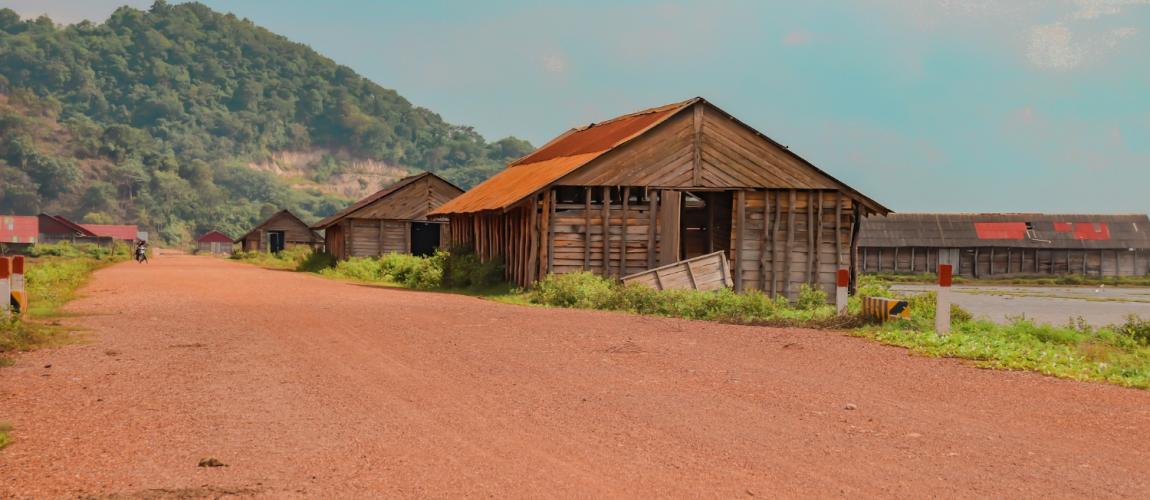Dege Eco Village, Dar es Salaam, Tanzania

Photo Credit: Image by Freepik
On this page: Challenging Case: Dege Eco Village, Dar es Salaam, Tanzania. Find more at the Municipal Public-Private Partnership Framework - Project Summaries section for brief summaries of around 100 projects from around the world, examples of successes and challenges, as well as innovative ideas on solutions, or visit the Guidelines to Implementing Asset Recycling Transactions Section Overview and Content Outline, or download Full Version of the Report.
Project Summary: Background Dar es Salaam is the second-fastest-growing city in the world. The city’s population has been projected to grow from six million in 2015 to 13.4 million by 2035, well in excess of the 10 million “megacity” threshold. This increase has been attributed to a high birthrate and growing migration to the city. These urban migrants came from all over Tanzania to improve their standard of living. As a result, Tanzania is facing an acute housing deficit of three million units that keeps growing by 200,000 units per year, mostly in Dar es Salaam. To address the housing deficit problem, the National Social Security Fund (NSSF) of Tanzania partnered with a private company called Azimio Housing Estate Limited to construct Tanzania’s “most ambitious housing project,” called Dege Eco Village in Dar es Salaam. The project aimed to provide 7,160 apartments and 300 villas catering to all income brackets. Project Structure The project began as an unsolicited proposal submitted by Azimio Housing Estate Limited, with the private partner offering to provide 300 acres of land located in Kigamboni District in Dar es Salaam for the project. A joint venture (JV) called Hifadhi Builders Limited was created between NSSF and Azimio Housing Estate with 45 and 55 percent shares, respectively. Of the 55 percent shares held by Azimio, 20 percent reflected its land contribution and the remaining 35 percent was provided as cash. The project was reportedly expected to comprise three phases; scheduled for completion by the end of 2016, 2017, and 2018, respectively, with a total cost of USD 653 million. The joint venture would use the returns from the high-end housing units to subsidize the less profitable, lowerpriced units. Lessons Learned After construction started in 2014, progress was slowed by the absence of basic infrastructure connections such as water, roads, and electricity. An audit done in 2015 exacerbated the situation, as it indicated that the project exhibited irregularities and was “not serving the public interest.” Apparently, the project did not go through the PPP Financing Unit within the Ministry of Finance or the PPP Coordination Unit for approval out of concerns over government bureaucracy. Following the inspection, development stopped and the project site was deserted. This project highlights the need to perform adequate due diligence, secure all necessary approvals, and identify and source all of the resources needed before breaking ground on any project. This project seemingly failed for many reasons, ranging from poor contracting and procurement, to project mismanagement and allegations of corruption.1 Footnote 1: Case source(s): http://daman.co.tz/ portfolio/dege-ecovillage/ accessed on July 2, 2019. https://www. thecitizen.co.tz/news/ business/1840414- 2647148-11i5aq3/index. html accessed on July 2, 2019. http://www.arcom. ac.uk/-docs/ proceedings/ e5594aa1eec c7ada98f489 46496b6d0d.pdf accessed on July 2, 2019. https://www. nationalgeographic. com/ environment/2019/04/ tanzanian-city-maysoon- be-one-of-theworlds- most-populous/ accessed on August 20, 2019
This is a new section of the PPPLRC website and is currently in draft form. Your feedback is welcome: If you would like to comment on the content of this section of the website or if you have suggestions for links or materials that could be included please contact us at ppp@worldbank.org.
To find more, visit the The Municipal Public-Private Partnership Framework - Project Summaries section, the Guidelines to Implementing Asset Recycling Transactions Section Overview and Content Outline, or download Full Version of the Report.
Updated: March 9, 2024